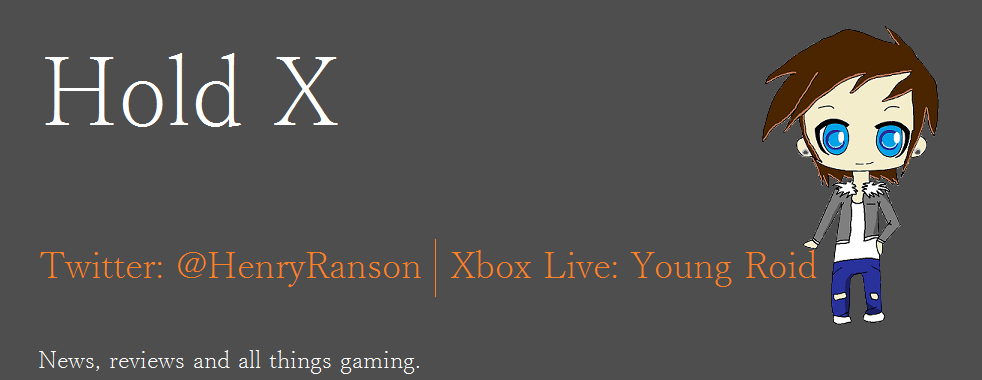With more and more details being revealed, a couple new
trailers, and now a release date, the hype for Dragon Age: Inquisition is at an
all-time high.
Living in the shadow of one of the greatest RPG series ever
made is both a blessing and a curse. BioWare’s masterpiece has cemented the
studio as one of the top dogs with its blend of adrenaline pumping action,
cause and effect morality choices and truly epic story telling. However, as
proved with Dragon Age II, not everything from Mass Effect is transferrable. It
seems you can’t just give Shepard a broadsword and call him “Knight-Commander
Shepard”.

There was a lot of negativity towards Dragon Age II, mainly
referring to repetitive dungeon levels and the limited character creation of
the original, Dragon Age: Origins. Have no fear however, it seems as though
BioWare has been listening. The studio made a big deal of traipsing through all
the Dragon Age II feedback and using it as a source for the design of
Inquisition, and has significant changes in store to ground the game back to
its roots. “We’re missing our top-down tactical mode we had in Origins, so lets
do it. But saying that, you take that feedback and you want to look between the
lines a little bit, and also combine that with where you want to take the
franchise, so it kind of gets a bit of a spin”, explains producer Cameron Lee
The most obvious change to Inquisition is its return to a
wider range of character creation options that were available in Origins. The
transition to a named, voiced human character was not a popular one.
Inquisition will therefore revert to allowing players the option of multiple
race choices, including Human, Elf and Dwarf. Players will also get to choose
between the standard fantasy classes (Warrior, Mage, Rouge), as well as new
unlockable sub classes. Warriors may choose between Champion, Templar and
Reaver, Mages have the option of choosing between Rift Mage, Necromancer and
Knight Enchanter, whereas Rouges pick between Assassin, Artificer or Tempest.
Being able to customise your character is important to the
spirit of Inquisition believes Lee. He states that “One of the principles that
we’re working towards is that Dragon Age: Inquisition is your game – we want
you to be able to create the character you want to create, which is why races
are there as well, why you can customise the way you look, the way your
followers look, crafting is more complex than any BioWare game we’ve done
before”.
This principle of players playing “their game” is not only
reflected in characters, but the world around them. The most exciting change
being implemented is the shift from sandbox to an open world environment.
Players are now free to explore Thedas in whichever way they see fit. It’s no
secret that the developers have designed Inquisition as a ‘Skyrim Killer’ and
have extensively researched the environment of Bethesda’s epic adventure. Where
Inquisition differs however is that players can physically alter the world
around them both knowing and unknowingly. This is where BioWare is in its
element, decision making. Mass Effect veterans will know that every action has
a consequence in a BioWare game. Saving a life in Mass Effect may spare a life
in Mass Effect 3, whereas aiding a human fleet may brand you as xenophobic for
the entirety of the series.
Inquisition expands
upon the typical paragon and renegade dialogue choices to achieve change to the
world around you. Instead the world is fluid and constantly in flux. If a
player finds his or herself gallivanting past a village under attack by
bandits, they have no obligation to assist the townsfolk and doing so will not
affect the main storyline, however if they allow the village to be destroyed
then it may disappear from the world forever. Lee explains the mechanics of the
world as “based on an emergent system that adjusts what you’ll encounter based
on how your actions tip the balance in the area. You’ll see towns attacked by
bandits, deer fleeing from wolves, giant’s feeding on bears, and countless
other scenarios”. It’s as if BioWare are fulfilling all the promises of Peter
Molyneux.
Areas announced for Inquisition include a return to Ferelden
as well as the French inspired land of Orlais, of which includes The Dales, a
mass elven graveyard in memory of the fallen Elves. To gain an idea of the size
of the map, it’s claimed that one area of Inquisition is larger than every area
of Dragon Age II combined.
With such a large transition from Dragon Age II, BioWare
certainly has a tall order ahead of them. That being said, the attention to fan
feedback is truly touching and Inquisition appears to keep true to what makes a
great BioWare game. A vivid world to explore filled with a rich backstory, and simply
unmatched storytelling.
